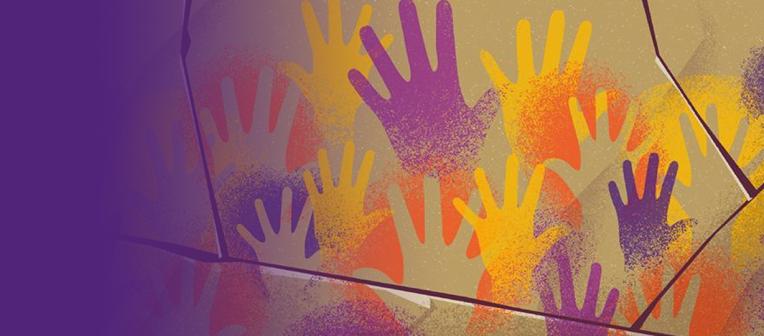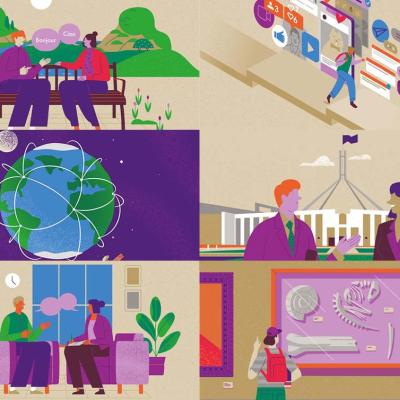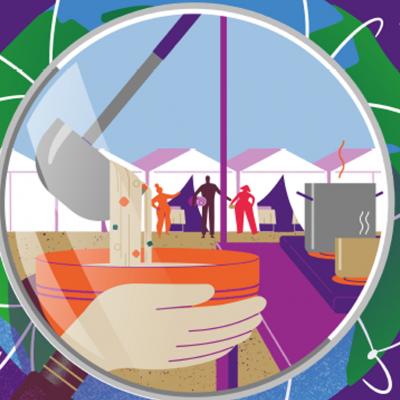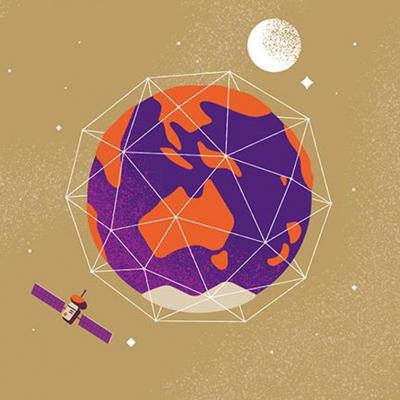Culture is and always has been a fundamental aspect of humanity. When you study anthropology, you get to explore the impact culture has on the past, present, and future.
Does this already sound fascinating to you? Well, there’s a good chance the Anthropology major would pique your interest countless times while you study a Bachelor of Arts.
But what about after university? What careers in anthropology are waiting for you? And what skills will you have up your sleeve when you graduate with an anthropology degree?
We caught up with Dr Richard Martin, Senior Lecturer at UQ’s School of Social Science, to find out why he thinks studying anthropology is so neat – and why you might too.
Is Anthropology a good major?
Richard believes part of what makes the Anthropology major so valuable is how diverse and far-reaching it is.
“Anthropology is the study of culture and cultural difference,” he says.
“It offers a broad perspective on the diversity of human experience.”
Anthropology students at UQ get to explore a comprehensive range of topics, including:
- the anthropology of current world issues (e.g. climate change, migration and refugees, and economic inequality)
- the anthropology of Indigenous Australia (focusing on Aboriginal and Torres Strait Islander cultures across Australia)
- medical anthropology (i.e. the relationship between culture and health)
- environmental anthropology
- applied anthropology.
Whichever areas you find most appealing, the Anthropology major will prepare you for a rewarding and successful career of putting your understanding of culture into practice.
“Anthropology is a challenging and robust social science, which will prepare you for a range of career opportunities in government and industry, non-government organisations and the community sector, and the corporate world,” says Richard.
Skills you get when you study anthropology
The fundamental skill set of anthropology is social research, which can be applied across many sectors and professions. At UQ, these skills are taught through a range of theoretical and practical sessions.
“As well as undertaking library research, UQ anthropology students have the opportunity to participate in ethnographic fieldwork and undertake participant observation with informants off campus, focused on real-world challenges and problems in society today,” says Richard.
“They learn to think critically about cultural diversity and cultural change across multiple settings, from changing attitudes to environment, to changing relationships with technology.”
“Anthropological methods and skills are in high demand in a range of settings, and you will learn to communicate anthropological insights effectively with different audiences and stakeholders.”
Why is studying anthropology important?
The study of anthropology is important because it gives us a holistic understanding of what being human is all about. Studying anthropology empowers us to:
- explore the diversity of cultures and societies around the world and throughout time, building a richer understanding of the human experience
- become well-informed and culturally sensitive global citizens who treat each other with empathy and mutual respect
- study the origins and evolution of humanity, which can assist with our understanding of human biology, health, and disease
- research and develop effective policies in areas like education, poverty assistance, and public health
- debunk myths and stereotypes in order to challenge harmful prejudices about different cultures and peoples
- preserve cultural heritage through the protection of languages, traditions, and artifacts.
Anthropology is important because it gives us a crucial human-centred lens through which to view other areas. From psychology and sociology to linguistics and even biology, many fields of study benefit from the extra perspective and insight that anthropology provides.
Careers in anthropology
So, what can you do with an Anthropology major? Well, just like the area of study itself, the answer to this question is quite broad.
“Anthropologists work in a range of settings across society,” says Richard.
“For example, many anthropologists work with Indigenous people and communities around Australia to achieve recognition and protection of their native title rights and heritage.”
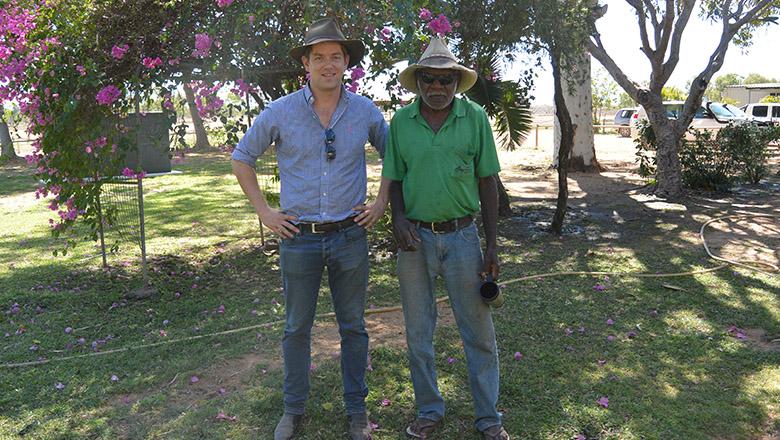
Dr Richard Martin with Warren Beasley, conducting fieldwork for the Kurtijar people’s native title claim.
Other anthropology careers that spring to mind for Richard include:
- working in health promotion, exploring the link between culture and illness (e.g. managing the impacts of HIV and COVID-19 – and preparing for future pandemics)
- working in industry and the corporate world (e.g. in IT companies, exploring the uptake of technology and our evolving relationships with it)
- working with fashion companies and fast-food chains (e.g. to understand customers’ experiences).
Essentially, if your dream job involves understanding and dealing with people, there’s a good chance that studying anthropology will help you get there.
“There is no limit to what you can achieve with a background in anthropology,” says Richard.
Jobs for Anthropology majors
Some of the career paths our Anthropology major graduates commonly pursue include:
- regional anthropologist
- community development officer
- museum director/curator/administrator
- cultural safety training facilitator
- native title officer
- cultural heritage manager
- policy adviser
- refugee support worker
- corporate culture researcher
- consumer and user experience researcher
- language and cultural preservation researcher.
Study anthropology at UQ
When you choose the Anthropology major at UQ, you’ll have access to courses such as:
- Being Human: Cultural Diversity and Experience
- Anthropology of Current World Issues
- Theory and Society in the Pacific
- Applied Anthropology and Indigenous Territories
- Ecology, Culture, and Field Research
- Medical Anthropology: Local and Global Perspectives
- Migration, Culture and Identity
- Ethnographic Fieldwork
- Anthropological Futures
Learn more about UQ’s Anthropology major Explore other options in the UQ Bachelor of Arts

